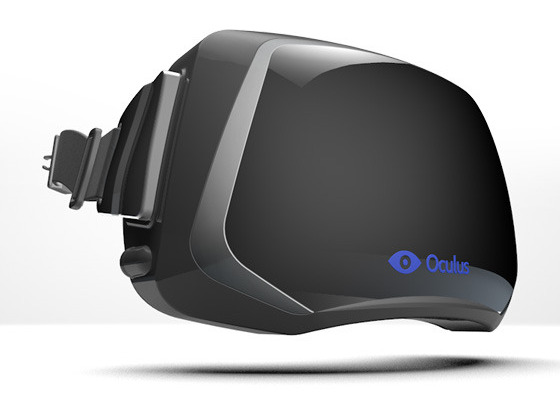Oculus Rift to Support Users with Eyeglasses.... Sorta
Have bad eyesight? The Oculus Rift will supposedly allow for glasses-free gaming. Meanwhile, creator Palmer Luckey is asking consumers not to fund the Kickstarter project.
Joystiq reports that the upcoming virtual reality headset Oculus Rift will support users who require glasses. The thing is, they won't be able to wear their corrective specs while the headset covers their face unless they throw a pair of contacts on their eyeballs. Instead, Oculus Rift will feature adjustable optics.
"While the unit won't fit over eyeglasses -- creator Palmer Luckey tells us it would put the headset too far away from the user's face -- it will have adjustable optics," Joystiq reports. "Exactly how these will be implemented hasn't been finalized, though two possibilities include binocular-like dial adjustment or special optical inserts. The only impairment that could be problematic, says Palmer, is cases of severe astigmatism, though that may be correctable via software."
Meanwhile, Luckey is asking people not to back the Kickstarter project thinking they'll get a commericalized virtual reality headset. Oculus is actually looking for developer support, not from consumers. "We don’t want [the crowdfunding] to go to $5 or $10 million because consumers are getting in on these developers’ kits," he told Wired.
So far the project has landed 6,923 backers promising $1,691,562 USD, surpassing the original $250,000 goal by a long shot -- with 15 days to go still. What backers will get is a prototype development kit featuring screens significantly lower in resolution than the planned final commercial version. It's also reportedly heavier than what's planned for the final version, and currently it only support Doom 3 BFG Edition.
"We really do think that the consumer version of the Rift is going to be far and away … a whole other level in terms of latency and comfort," Oculus vice president Nate Mitchell said.
Luckey said that the company is trying to walk a fine line when it comes to promoting the crowdfunding drive. The Kickstarter project isn't meant to pre-sell units to early adopters, but to get developers pumped up and implementing the headset into their games. By hyping Oculus too much, consumers with loads of cash might buy the prototype developer kit, expecting something more commercial and ready-to-play.
Still, the headset is receiving a lot of buzz nonetheless. Luckey is hpong the buzz will push gamers into requesting support from their favorite developers. "If we don’t have that community aspect, a lot less happens," says Luckey.
Get Tom's Hardware's best news and in-depth reviews, straight to your inbox.

Kevin Parrish has over a decade of experience as a writer, editor, and product tester. His work focused on computer hardware, networking equipment, smartphones, tablets, gaming consoles, and other internet-connected devices. His work has appeared in Tom's Hardware, Tom's Guide, Maximum PC, Digital Trends, Android Authority, How-To Geek, Lifewire, and others.
-
mousseng I think you meant to type "hoping" in the last paragraph, and not "hpong." Although hpong should be a word.Reply -
BigBodZod I like how devices like this would leave out us folks having to wear corrective lenses and don't wear contacts either :(Reply -
bustapr bigbodzodI like how devices like this would leave out us folks having to wear corrective lenses and don't wear contacts eitherdid you not read the article/title?Reply -
alidan get developers excited... make them pay and force them to implement this from the get go in gamesReply
not wanting consumers support on this, what would force developers to make the games to incorporate this.
yea. i see both sides, but both sides are failing arguments.
you need a game, a tech demo game, and that will be doom 3.
you need to than sell the head mount to the consumer and show devs there is a market
you than need to go to mass market and get xbox 720 or ps4 to use this as a way to game, so you can show developers this has some major support.
than you end up with something that might have legs. and that is a big might, because consumers are generally stupid.
i really hope this goes well for them as i have been waiting a good 15 years for this. -
Timberwolf_CLT psychotek71wow i gave them money now i want my money backDude, they had that disclaimer clearly stated on the project site from the start.Reply -
house70 moussengI think you meant to type "hoping" in the last paragraph, and not "hpong." Although hpong should be a word.ROFLMAO.Reply -
I was actually going to buy the prototype, low res with duct tape and everything, because it still looks like it would be a lot of fun to play around with. Unfortunately you have to actually assemble it yourself, and I'm not much of a handiman so I'll just wait for the consumer version, or at least a prototype that's more developed. The most recent version on Engadget looks significantly better assembled than what they demo'd at Siggraph or QuakeCon or whatever.Reply
